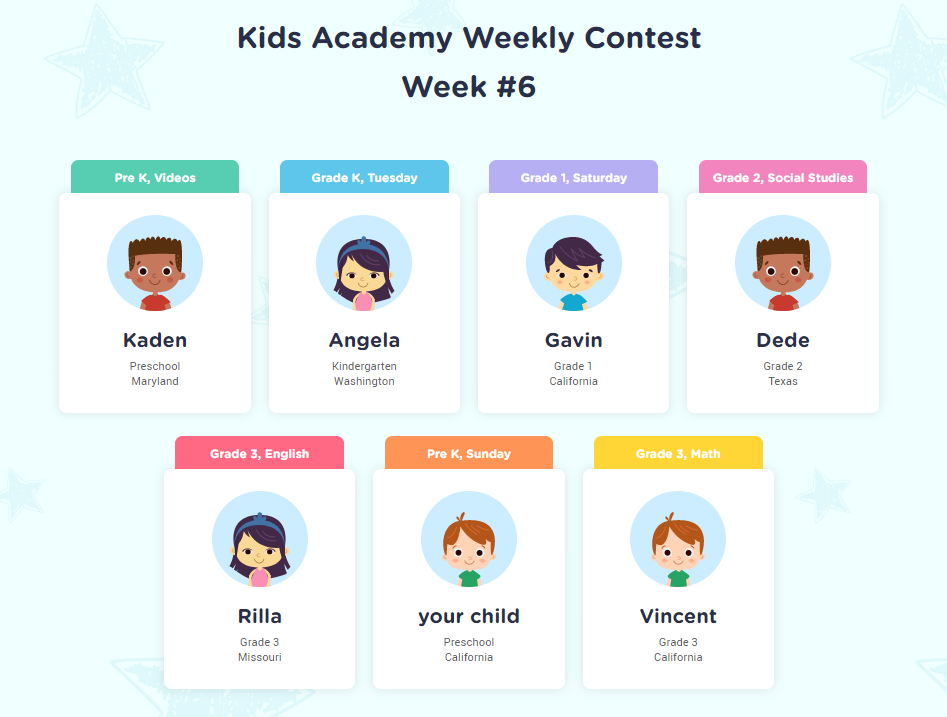Comprehension skills Science Worksheets for Ages 6-9
6 filtered results
-
From - To
Enhance your child's learning experience with our Comprehension Skills Science Worksheets designed for ages 6 to 9! Our worksheets are tailored to engage young learners by combining fun activities with essential science concepts. Children will cultivate critical thinking, improve reading comprehension, and reinforce vocabulary skills as they explore fascinating topics in the natural world. Each worksheet features interactive tasks that make learning enjoyable while promoting a deeper understanding of scientific ideas. Ideal for classrooms or at-home learning, these resources foster curiosity and a love for science. Start your child's journey into the wonders of science today with our engaging worksheets!
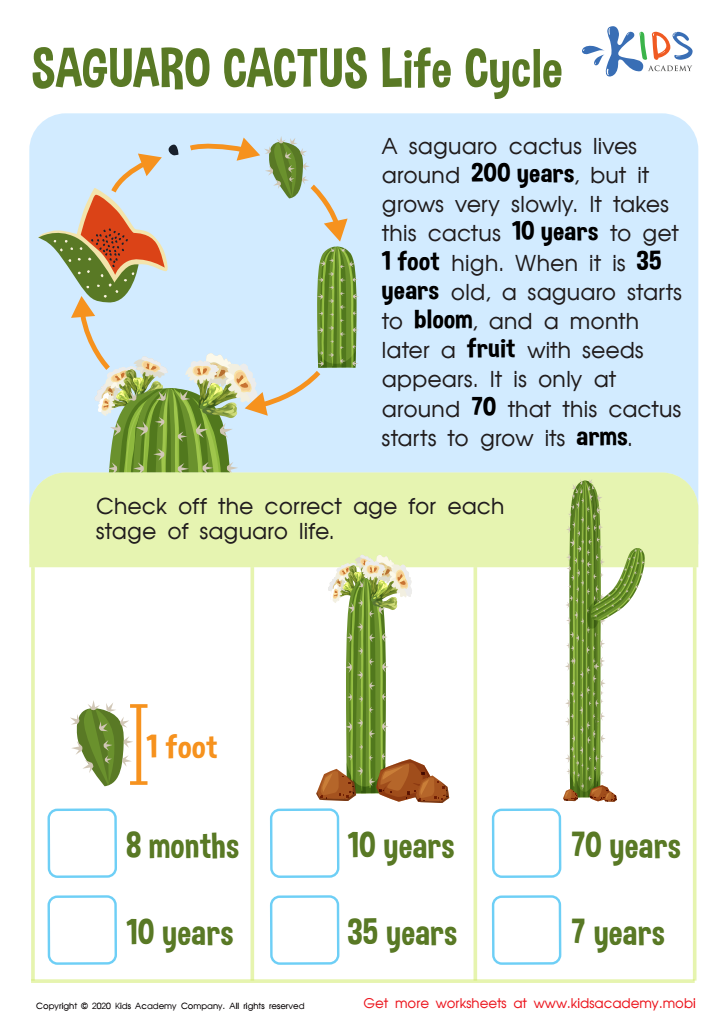

Saguaro Cactus Life Cycle Worksheet
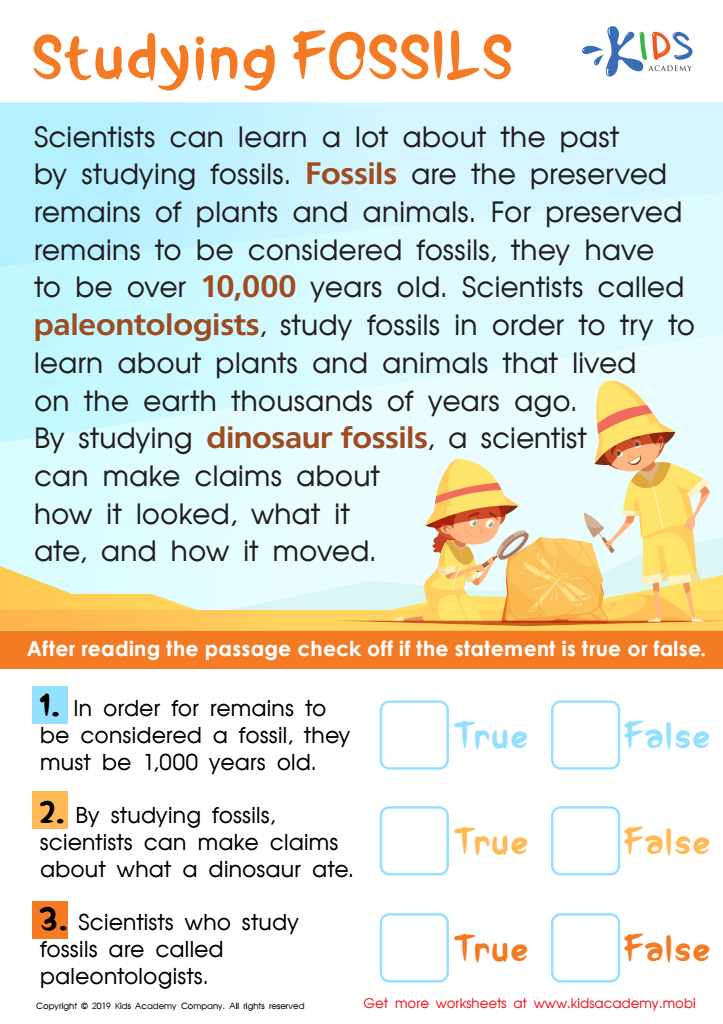

Studying Fossils Worksheet
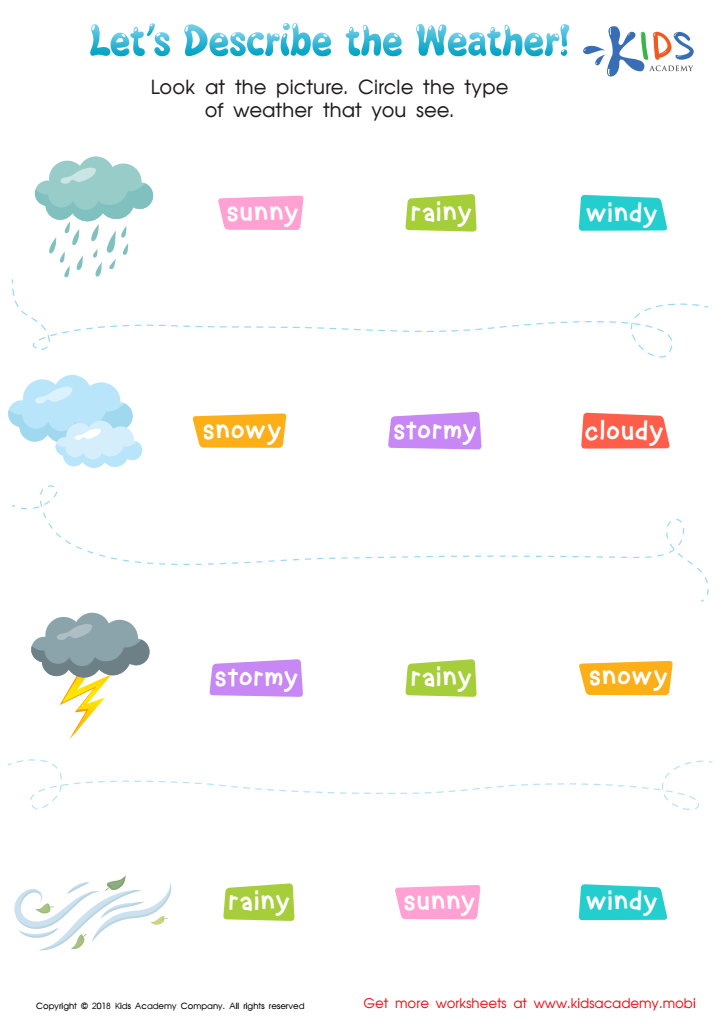

Let's Describe the Weather! Worksheet
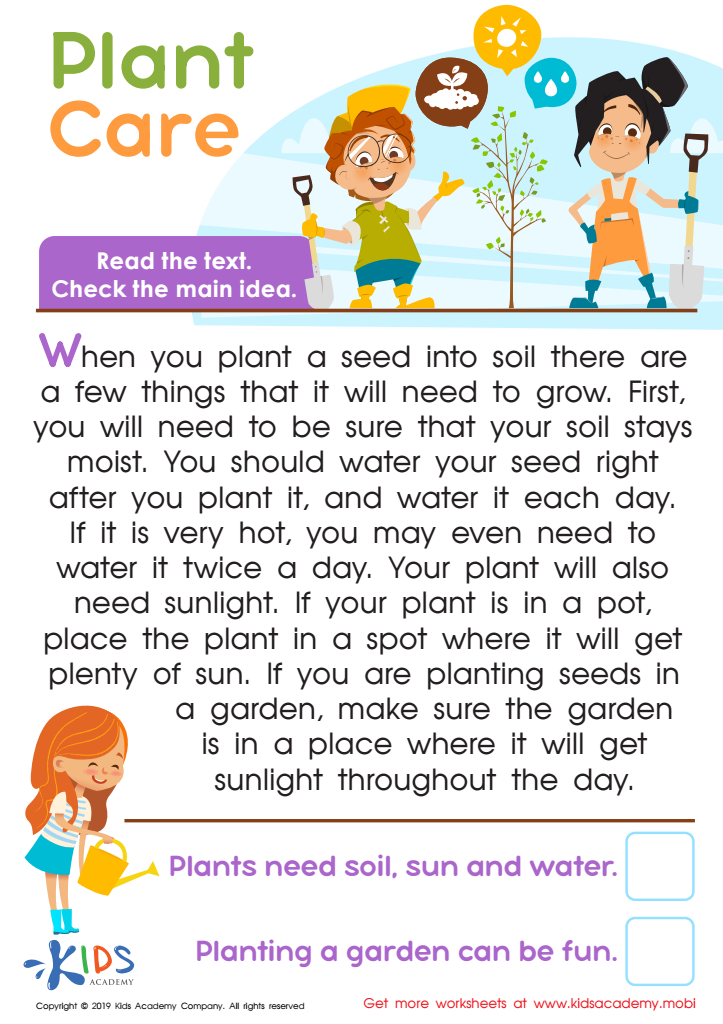

Plant Care Worksheet


What Do Plants Need to Grow Worksheet
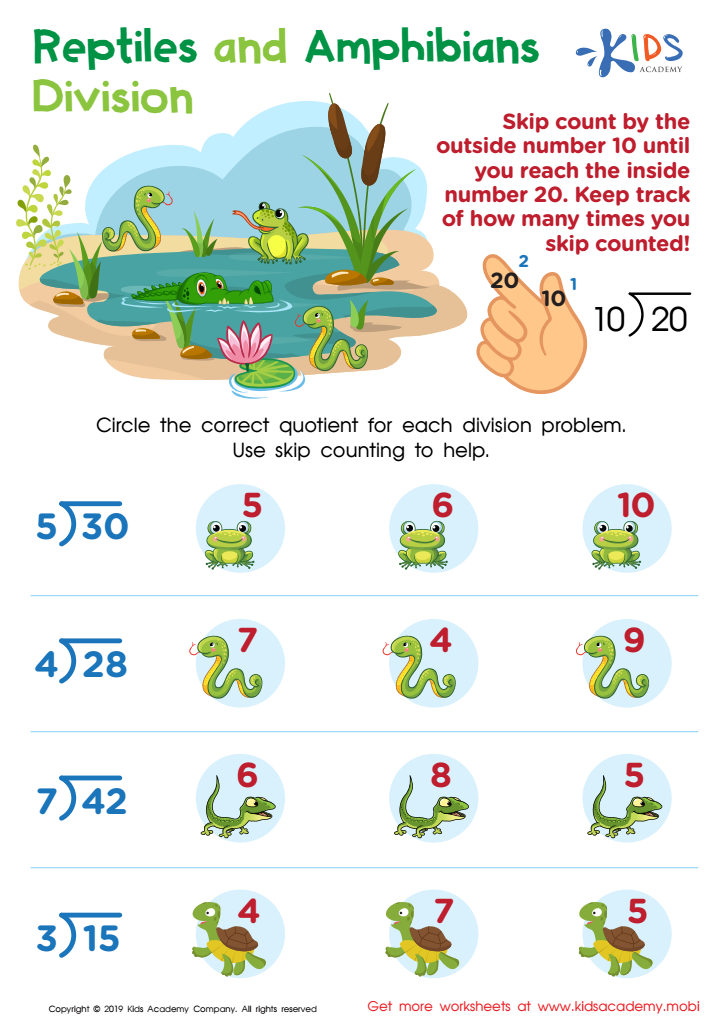

Reptile and Amphibians Division Worksheet
Comprehension skills in science for children ages 6-9 are critical for several reasons. At this developmental stage, young learners are naturally curious, and engaging them in science fosters a lifelong love of learning. When parents and teachers emphasize comprehension skills, they help children not only understand scientific concepts but also develop critical thinking and analytical abilities.
Strong comprehension skills enable children to grasp core scientific ideas, ask pertinent questions, and relate their findings to real-world situations. This is essential for building a solid foundation for future learning in both science and other subjects. Additionally, incorporating comprehension skills promotes communication, as children learn to articulate their understanding and voice their ideas.
Moreover, functional literacy in science empowers young learners to navigate an increasingly complex world, where they will need to make informed decisions about health, the environment, and technology. By ensuring kids can comprehend and process information, parents and teachers can boost academic performance, enhance problem-solving skills, and cultivate inquisitive minds prepared to tackle future challenges. Thus, investing in these skills not only benefits individual learners, but also contributes to a scientifically literate society.

 Assign to My Students
Assign to My Students





